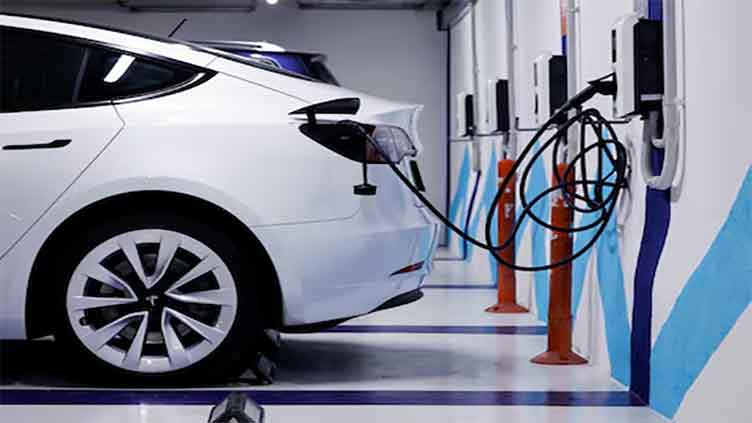EU's 2050 net zero goals at risk as EV rollout faces setbacks

Technology
EU's 2050 net zero goals at risk as EV rollout faces setbacks
BRUSSELS (Reuters) - The EU needs to rethink its policies to make a 2035 ban on new petrol car sales feasible as electric vehicles (EVs) remain unaffordable and alternative fuel options are not credible, the EU's external auditor said, jeopardising its 2050 climate goals.
The 27-member bloc wants to achieve net zero emissions by 2050, meaning it will emit no more than it can balance out with measures to remove carbon dioxide from the atmosphere such as reforestation programmes.
It hopes to meet its targets with the widespread use of electric vehicles as road transport accounts for nearly a quarter of its emissions.
The EU wants to have at least 30 million zero-emission cars on European roads by 2030, or about 12% of the current car fleet. However, the European Court of Auditors (ECA) cautioned the bloc may create new economic dependencies and hurt its own industry.
As it stands, high EV production costs in Europe means the bloc will have to rely on cheap imports, mainly from China, if it sticks to the 2035 goal. China accounts for 76% of EV battery output compared with the EU that represents less than 10% of production globally.
"The EU faces a conundrum, how to meet goals without harming industrial policy and hurting consumers," Annemie Turtelboom, an ECA member, told reporters. She added that 2026 will be a key year for a policy review.
Tesla (TSLA.O), opens new tab is the leading EV maker in the United States and Europe but has come under pressure to slash prices due to competition from Chinese cars. Similarly, European carmakers like Stellantis (STLAM.MI), opens new tab that owns Peugeot and Fiat, and Renault (RENA.PA), opens new tab are now racing to develop their own affordable EV models.
But rising sea temperatures and human destruction is pushing many corals in the archipelago to the brink, endangering the ecosystem as well as tourism.
While EV purchases have been on the rise in the EU, the increase was largely due to subsidies. Further, charging infrastructure is lacking with 70% of charging points concentrated in just Germany, France and the Netherlands. The EU is falling short of its aim to set up 1 million charging stations across the bloc.
"(EV) prices would need to halve and subsidies do not seem to be a viable tool ... Batteries alone already costs 15,000 euros when produced in Europe," Turtleboom added when speaking to reporters.


